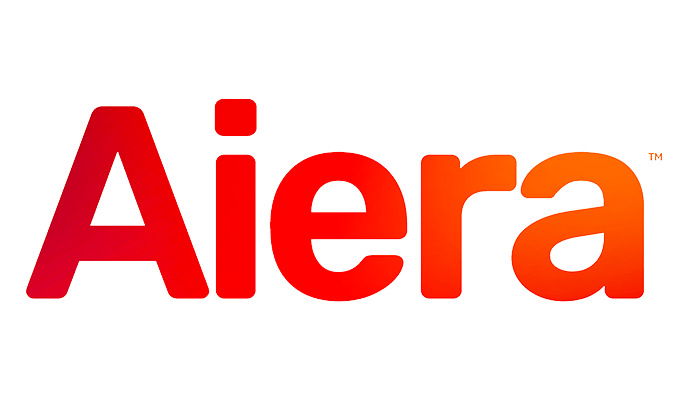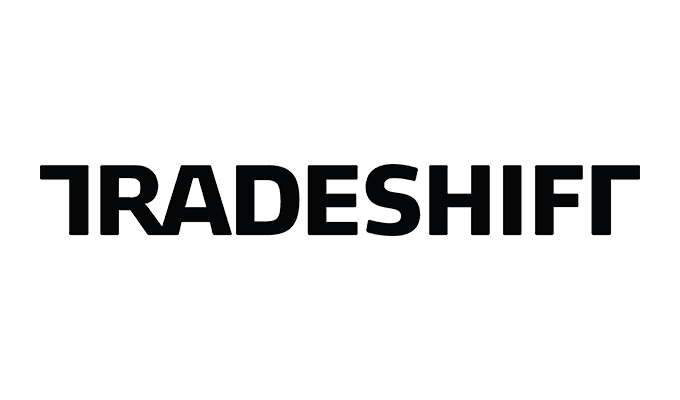
Fin VC Navigator – 1H 2019
Dear Fin VC Partners, Investors & Friends –
We had a busy 2018, with 8 investments, we were named the 2nd most active FinTech VC by BTIG, despite having only launched in April! The year has gotten off to a tremendous start, with two new investments and we will be announcing several significant co-investment opportunities in the near term as well. We would like to continue to stay in close touch and aim to find ways to collaborate. As you know, we take a long and patient view on our global relationships and as we serve as fiduciaries and add value for our entrepreneurs and partners, we recognize that growth can only come with merit. We thank our portfolio company CEOs, limited partners, co-investors, and Advisors, for your tremendous support.
In these ongoing communications, we will cover 3 areas – 1) Macro; 2) Micro; and 3) Firm Updates. As always, we welcome your feedback and ideas and look forward to keeping a regular dialogue going with you all. We invite you to visit our website where we will continue to provide firm, portfolio, and news/event updates. In order to address the current micro environment of venture capital and FinTech, we assembled a presentation which can be viewed here. If you would like a soft copy of the presentation, feel free to e-mail us at [email protected].
Our 2 asks from you:
- Invest with or alongside of us. We welcome new long-term limited partners as well as co-investment collaborators.
- Pipeline – we love to meet CEOs early and often, we welcome your ideas and introductions to companies you are bullish on!
Macro
Based on your feedback from our prior letter and the number of macro reports you all receive, we’ll keep this section succinct and link our favorite resources: As VCs, we monitor overall market conditions, but in particular cost of capital, valuations, consumer and corporate confidence, SMB support, and the overall regulatory environment for entrepreneurs, venture capital firms and the financial services industry. Overall, according to Goldman’s 2019 forecast, we will see moderated global growth (3.5%), a rising recession risk for this year of 15-20%, labor market tightening, continued wage growth (4-5% YOY growth), elevated consumer confidence (~98% in March – U of Michigan), gradually rising core inflation, higher policy rates in certain geo’s, and a view that the US still represents the most attractive market for investment. The bull market in US Equities turned 10 on March 9th and while this current rally is among the longest in history, lack of excesses/bubbles in inflation, moderate valuations (S&P trading at ~18.5x 12-month estimates), subdued inflation/relatively low interest rates, stable (at the moment) earnings estimates and moderated investor euphoria have most pundits pointing toward more upside. Though the Yield Curve inverted (10 year < 2 year rates) the week of March 18th, we would caution against reading too far into the signaling effect due the decreasing correlation (see Pictet Wealth Management’s work here). Further, the average stock market gain in the 18 months following an inversion has been 15%. Additionally, bond market returns have been strong in early 2019 after volatility in 2018, despite low yields and most analysts don’t foresee a further hike given the dovish tones of the Fed and ECB, making shorter duration maturities and high quality a focus. A larger concern may be the bubble-nature of the credit markets given the amount of covenant-less debt exceeding 2007 levels and lower ratings quality of PE-backed debt issuance in particular – Moody’s recently reported that around 90% of PE-backed debt issues are rated B2 or lower, compared to just 40% of spec-grade companies without PE sponsors. In addition to market conditions and monetary policy, we are keeping an eye out on a number of other factors and potential exogenous shocks, including: Fallout from political investigations into current US Administration, domestic legislation on technology (FinTech and broadly), Trade war with China and potentially others with tariffs and world trade issues, North Korea threat, Brexit/EU balance, Iran agreement, and cyberattacks (Russia and other actors).
Macro Reports We Read:
- Goldman Sachs Market Outlook
- Morgan Stanley Market Outlook
- UBS Market Outlook
- Alliance Bernstein Market Outlook
- Warren Buffett Shareholder Letter
Micro
- Link to our latest Research Report
- Key Themes in FinTech – as outlined in the report:
- Ecosystems continue to matter – many of the top growth stories are spin-outs of legacy FinTech players (continuation of the “PayPal Mafia” effect), who have unfair advantages in launching a new company. Thus, proprietary networks and access to ecosystems will provide a competitive advantage in sourcing and operating globally for VCs/Angels.
- Platform players are outperforming single vertical co’s and we are seeing a fundamental re-coupling through multi-vertical players along with a rise in consolidation and M&A. As our research report indicates, we started with single vertical solutions to specific FinServ use cases, but have seen the “full stack” focus of incumbents and several FinTech serve as a significant differentiator with customers and drive improved growth and unit economics (CAC/LTC via x-sell/upsell).
- B2B & B2B2C > B2C Companies – Incumbent and corporate adoption of FinTech is driving accelerated growth. We believe B2B and B2B2C co’s will drive the next wave of growth and performance in FinTech, as they represent capital light businesses with built in scale/network effects that can be globalized without significant regulatory hurdles. The lack of material white space/TAM in the US for B2C, along with the capital and competitive intensity (increasingly from incumbents being supported by the US regulatory framework), makes the space increasingly difficult for new entrants.
- Geo’s follow the same pattern – See slide 7 of our presentation for a proprietary analysis of the observed maturity pyramid for FinTech across geographies. We have seen the step-function penetration of these capabilities in each country historically and the framework provides a predictable map forward for governments, operators, and investors.
- Blockchain will “eat” every area of FinServ – eventually. We are in the first inning of Blockchain as an enterprise application and there are a limited set of use cases we feel will ultimately scale in using public permissioned protocols to solve for specific problems. Figure represents one of the first enterprise applications at scale, as highlighted below, they have built a protocol focused on securitization of assets, starting with credit, all via their protocol, Provenance and token, Hash.
- AI continues to shape all aspects of FinServ. If there isn’t an AI/data science story with and talent in the company, we are typically surprised/concerned. All of our portfolio companies and the leading players at growth/late stages have found areas to incorporate AI/ML/NLP and other frontier tech into their core tech stacks and processes. We have companies like Netomi solving for customer service automation and improvement and players like Onfido solving for legal digital ID, all with new technology offerings that are rendering incumbents non-competitive.
- Key Data in FinTech – 2018 Summary:
- Global Financing Volume: $53.132B => 98.30% YoY Growth
- # of Financing Transactions: 1,588 (1,232 with an announced $ amount, 356 unannounced); -2.58% YoY Growth
- Global M&A Volume: $124B => 41.37% YoY Growth
- # of M&A transactions: 846 (178 with an announced $ amount, 668 unannounced); -7.64% YoY Growth. Largest transaction = Paypal acquiring iZettle, $2.2B.
- Key Data in FinTech – 1Q 2019 Summary:
- Global Financing Volume: $9.8 billion
- # of Financing Transactions: 391 (303 with an announced $ amount, 88 unannounced)
- Global M&A Volume: $112.1 billion
- # of M&A transactions: 233 (32 with an announced $ amount, 201 unannounced)
- Key Take-aways in VC:
- Headline: $130B was deployed into US VC in 2018, a ~58% YOY increase over 2017 ($83B), the highest since 2000. However, deal count was down by 6% YOY (8,948 vs. 9,489), indicating more capital being deployed into growth and late stage investments (Series D avg valuation is up 116% since 2016 as a result).
- Why? Due to increasing fund sizes – driven by Softbank’s wake, accelerated re-ups, “tourist investors,” companies staying private longer, and the relative capital intensity of these companies, round sizes and valuations have increased, particularly at the late stages, with $25M+ rounds representing ~25% of deals. Indeed, investments in unicorns and mega deals ($100M+) in 2018 nearly doubled compared with 2017. As a proportion of total VC capital invested last year, unicorns attracted more than one-third, while mega deals attracted nearly half.
- LP commitments: ~$56B to 256 US VCs closed last year, the highest amount since 2000. Looking ahead, thanks to five consecutive years with $34B+ raised and record levels of dry powder, VCs should have substantial optionality over the investment period.
- Liquidity: The slated lineup of IPOs for large unicorns, suggests that 2019 should be another strong year for VC exit value and increasing distributions back to LPs. Additionally, there have been an increase in exit opportunities from PE-sponsored buyouts as a source of liquidity, to complement acquisitions (where we see increasingly activity in FinTech), and the IPO growth which we expect to continue into 2020.
- Our Venture Asset Allocation Perspective: Our view on the portfolio construction to this asset class centers on several characteristics and is shared by many of the investment consultants we work with. We have aligned our platform and structure to these characteristics, developed a strong set of investment themes, proven operating framework, and strong team with portable track records.
- Early Stage focused funds have outperformed for 30 years
- At every historical benchmark year (ex. 15 year), for 30 yrs, Early Stage has outperformed Late/Expansion and Multi-Stage focused funds. (per Cambridge Associates benchmarks)
- Smaller funds outperform
- Firms that deploy smaller funds – <$400M – have consistently outperformed firms that employ larger fund sizes. Aligns with Earlier Stage focus at smaller fund sizes. (per Kauffman Foundation and SVB)
- Specialist players outperform generalists
- Investments by sector specialists returned an avg 2.2x MOIC and a 23.2% gross IRR, handily outperforming generalist investments that returned an aggregate 1.9x MOIC and a 17.5% gross IRR. (per Cambridge Associates benchmarks)
- Emerging managers outperform established managers
- Median net IRR for emerging managers = ~22% vs. established managers = ~8%, while 3.5% risker (per Preqin)
- Global diversification benefits correlation/risk metrics
- Geographic diversification in tech investments accrue correlation and risk mitigation benefits. (per Harbourvest)
- Co-investment rights are critical in providing more predictable Alpha given the power law return dynamics of this asset class, particularly with managers – like Fin VC – that provide access direct to cap table with no fee layer. Increased optionality, tactical allocation exposure, and liquidity. (Data and per Cambridge Associates)
Micro Reports We Read:
- FT Partners Research
- KPMG Pulse of Fintech
- PwC FinTech Report
- SVB State of the Markets Report
- Pitchbook-NVCA Venture Monitor
- Binance Research
Firm Updates
- Main Fund (Early Stage Focus): We formally launched and announced our firm in April 2018 and got to work on our Main Fund in June. The fund is focused on early stage FinTech companies in specific sub-sectors (outlined on our website), with a US focus (75% of portfolio) and bias to B2B/B2B2C companies where we see greenfield opportunities for scale/outperformance and the ability to add significant operating value. As outlined below, in 2018, we made six investments in the fund and two co-investments in Special Situation opportunities, with an additional two investments made in 1Q. We are supported by and grateful to our institutional LPs and prominent family offices. We have a significant pipeline of companies (500+) for this vehicle and co-investment opportunities across the sub-sector focus areas.
- Summary of Current Portfolio Companies: Notably across our ten companies we have been able to achieve diversification across our six sub-sector focus areas and geographically (US, Asia and EU), have multiple companies who have already raised subsequent rounds of financing, and our companies are powerfully diverse demographically, with three incredible female CEOs (30% of portfolio) and rock star female/minority management teams. We are excited to be actively working with all of our companies on business development, access to capital (equity/debt), global market entry, product roadmap strategy, and recruiting.

(Alternative Lending)
SoFi is one of the leading FinTech platforms globally with an end-to-end set of product offerings across lending (student loans, personal loans, mortgages), banking (checking, savings, and debit), wealth management, and insurance (life). SoFi’s leadership team includes Anthony Noto (CEO), Michelle Gill (CFO), and Joanne Bradford (CMO).

(Blockchain Enterprise Applications & Alternative Lending)
Figure’s vision is build an end-to-end financial services platform for consumers, enabled through web/mobile technology powered by AI, blockchain and other frontier technologies. Team includes Mike Cagney (CEO), June Ou (CTO), Alana Ackerson (CPO), and Cynthia Chen (CRO) and a management team including top industry/FinTech professionals.

(Blockchain Enterprise)
Coinsuper aligns to our Blockchain Enterprise Applications thesis, in providing an expansive set of services to the growing crypto-asset industry in Asia, with a focus on institutional investors. The company is based in Hong Kong and has a strong management and technical team, led by Karen Chen (CEO, fmr UBS Asia Exec) with deep financial services industry, FinTech, and blockchain/crypto experience. Further, the vision for the company aligns to our view on the role of exchanges and platforms in the space, in providing a diversified set of services primarily to institutional customers via multiple channels (Exchange, OTC, Brokerages, and Custodians). Our view is that Coinsuper will become the largest and dominant player in SEA and have an opportunity to be a top 3 platform in China and globally.

(InsureTech)
Avinew is solving for the auto insurance space broadly both B2C and B2B2C with a focus on semi-autonomous and autonomous driving. The team is partnering with affiliates, manufacturers, sharing economy companies and consumers to optimize insurance for the new age of auto. The team is led by repeat entrepreneurs and insurance experts, CEO Dan Peate (former CEO of Hixme), Ed Combs as Head of Product (one of the top auto insurance experts/underwriters globally), COO Jeremy Snyder (fmr Head of BD/Special Projects for Tesla), Randy Adams as CTO (fmr senior executive at Adobe, Yahoo, and HSN), and Steve Bentz as Head of Claims (30+ yrs experience across multiple insurance players).

(RE Tech)
CRE Simple provides an integrated end-to-end loan servicing platform that brings together an automated quote engine, intelligent task prioritization, collaborative workflows, and predictive outcomes. CRE simple focuses on the $1-10M loan market, which is a $200B market, of which the 20 brokers currently on the platform represent $30B of the market. Team is led by industry veteran Laura Millichap and repeat entrepreneur Brian Thompson.

(RE Tech)
Nestio is the leading leasing and marketing platform for multi-family, enabling owners and managers to generate more profits, efficiency, and analytical insights across their portfolio. The team is led by Caren Maio (CEO), Mike O’Toole (CTO), Tyler Christiansen (CRO), Scott Wolfgang (COO), and Ben Rubin (VP of Product). The team has built strong traction with real estate property managers, landlords, and brokers, driving strong stickiness with a growing customer base.

(Asset Management)
Aiera is headquartered in New York and is led by CEO, Ken Sena (formerly global head of internet equity research at Wells Fargo and held senior positions at Credit Suisse, Bear Sterns, and Salomon Smith Barney) and President/CRO, Chad Doerge (formerly held senior roles at Tomahawk, Evercore ISI, and Deutsche Bank). Aiera is an adaptive deep learning platform design to enhance active fundamental investment strategies, generally Buy/Sell/Hold calls (long and short recommendations) and clear, human-readable thesis summarizations using a proprietary neural interrogation tool and advanced linguistics techniques.

(Asset Management – co-invest SPV)
Tradeshift (TS) is the world’s largest, open, digital commerce platform enabling enterprises to connect, transact and collaborate with all of their business partners. The management team is led by founder and CEO Christian Laang and the company maintains a long and global perspective on their platform and future, incorporating frontier tech like blockchain, AI/ML, and IoT.

(Enabling Tech)
Netomi has built an advanced AI/ML deep learning platform to address the challenges of customer service across all industries, but with massive implications for Financial Services. Companies spend ~$400B/yr on customer services agents alone with over 1B tickets being generated a day via phone, e-mail, and live chat. The team is tackling this problem with a platform that provides enterprise customers a seamless way to automate customer service interactions across e-mail, chat, and social. The team is led by Puneet Mehta (CEO) and includes notable advisors like Dick Costolo, Demis Hassabis (DeepMind), and Nikesh Arora (PA Networks).

(Enabling Technology – co-invest SPV)
Onfido is the leader in digital ID, providing 3 layers of verification – government issued ID, biometric scan, and voice patterning/recognition. Companies like Square, Revolut, BBVA, Uber, Google, and Avis use the Onfido API to mitigate fraud/regulatory risk, manage hiring diligence, expedite KYC/AML requirements, and conduct ongoing cybersecurity checks on customer and employee access. Onfido is a team of 195 across NYC, SF and London.
Fin VC in the News
Warm regards,
Fin VC Team
Sources
- See Link to our latest Research Report
- Fin Macro Perspective: Fortune, Forbes, Trading Economics, and publicly available government data
- Fin Micro Perspective: Venture Capital data from Pitchbook/NVCA, SVB, and FinTech data from FT Partners and CB Insights. Portfolio construction data from Cambridge Associates, SVB, U of Chicago/Harvard research and Preqin.

